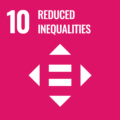GSCC 5th anniversary – Interviews with past winners series (3) : Dr. Prajwal Rajbhandari
We believe that chemistry plays a critical role in developing a sustainable future. Chemists have a special responsibility to develop those new products, resources and processes to make that happen. The Elsevier Foundation-ISC3 Green & Sustainable Chemistry Challenge seeks to stimulate innovative chemistry research that helps the environment and low-resource communities in emerging and developing countries. In November 2020, we’ll celebrate the 5th edition of the Challenge during the Green and Sustainable Chemistry Conference. To celebrate the milestone, we’re talking to past winners about what the prize meant to them, new developments in their research and plans for the future.
In 2018, Dr. Prajwal Rajbhandari was awarded the first prize of the Green Chemistry Sustainable Challenge of EUR €50,000 for his project, “Guava leaves as natural preservatives for farmers of Nepal.” Due to a lack of viable non-toxic preservatives, or cold chain technologies, one-third of Nepal’s produce is spoiled before it reaches market each year. Dr. Rajbhandari’s project taps the antioxidant and antimicrobial properties of guava leaves to make a water-based, sprayable natural preservative.
“Using guava leaves as a natural preservative replaces toxic chemicals and can be easily implemented at a local level involving local people; directly allowing for the safe transport of fruits to the local market without any residues being dangerous for the consumer and the farmers,” noted Dr. Küemmerer (add titles).
“Winning the Challenge is more than I could dream of. I can now scale up the project, and work with local teams to turn it into a success.” said Prajwal Rajbhandari.
Two years later, we interviewed Dr. Rajbhandari about his experience as a winner, as well as the upcoming steps for his project.
What are your project’s objectives?
I have four objectives that I’m working on: (i) Isolating and characterizing food spoilage microbes, (ii) Investigate antimicrobial, antioxidant properties and toxicity test of guava leaves (iii) Formulating bio-edible coating with guava leaves extract and (iv) Technology transfer to local farmers. I achieved the first two objectives, and currently working on the third.
We’re glad to hear that! Did you encounter any challenge in relation to the objectives you set?
I am facing some technical problem during formulation of bio-edible coating, which is the next step in the project development. It deals mostly with chemistry, and I’m a biotechnologist by training, so that requires a bit more research! Recently, we have been working as well with two international collaborators Dr. Sanjiv Parajuli, Postdoctoral Research Scientist at The University of Texas, USA and Dr. Denis Pires de Lima, The Federal University of Mato Grosso do Sul, Brazil on surface chemistry research part of this project.
The Research Institute for Bioscience and Biotechnology (RIBB) was founded with a mission to advance bioscience, engineering, innovation and education by collaborating with academic and other research organizations to conduct high quality research in a world-class academic and professional environment. Its goal is to form a consortium of committed, highly trained and competitive young investigators seeking to obtain collaborative and multidisciplinary research careers in the field of life science, technology and engineering.
What does the Elsevier Foundation Green & Sustainable Chemistry Award mean for you and your career?
The Award helped me start and establish a research lab for natural preservative research, which I think is the first of its kind in Nepal. It was the biggest grant received until now by any member in my institute. – and in turn, it allowed me to advocate role of Green Chemistry in society, a role that is not highlighted enough in my country.
Learning from EF-ISC3 GSC Conference in Berlin and Dresden, we (RIBB) were also able to organize the 3rd International Conference on Bioscience and Biotechnology (ICBB-2020) in Pokhara (Nepal) with one session highlighting on Green and Sustainable Chemistry.
What advice do you have for a researcher working in sustainable chemistry?
Find a local solution for your local problem: who is going to benefit from your solution? Will it help your community? A technological solution shouldn’t harm mother nature. Make it Green, Green is the future.





















